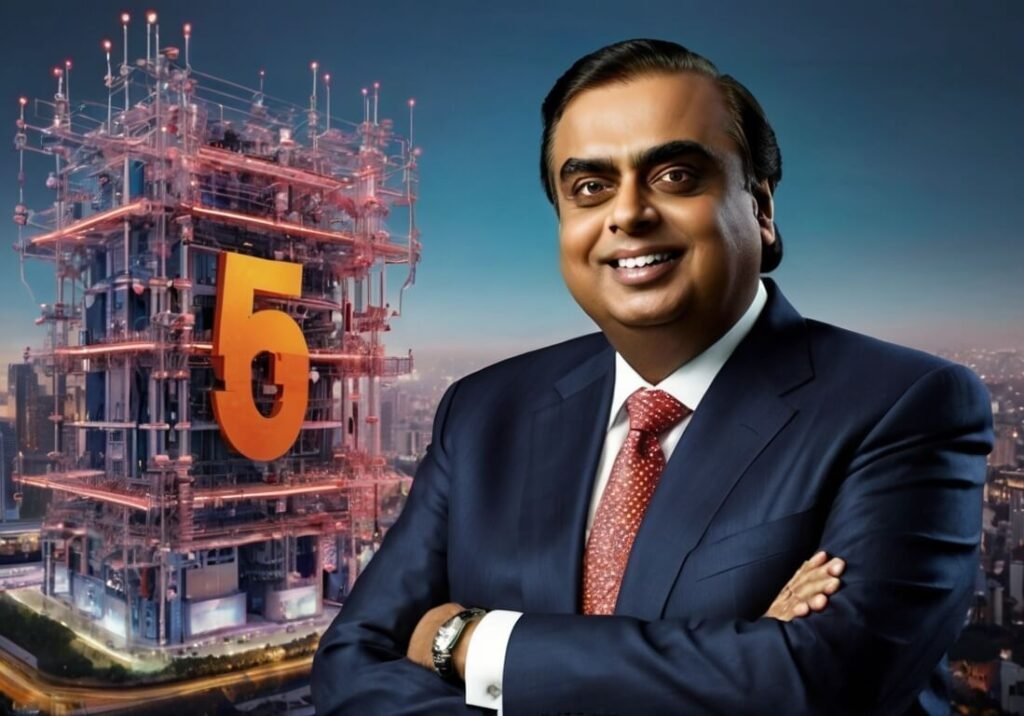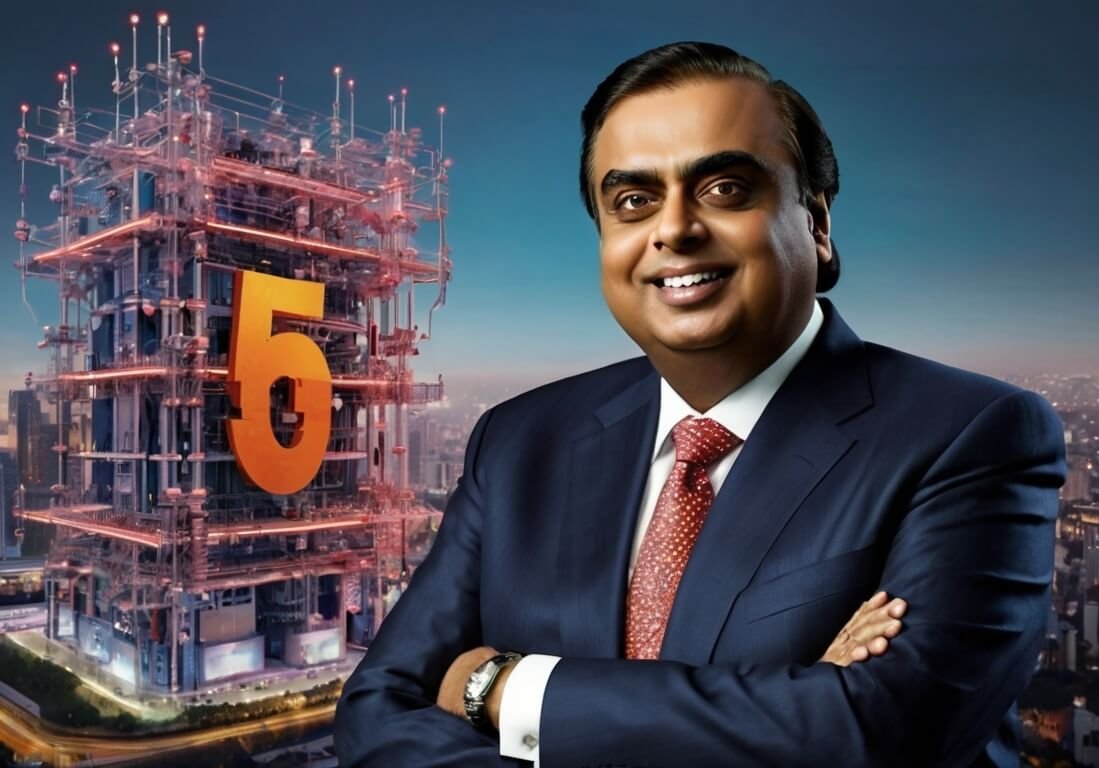
The Ghanaian government's plan to launch a 5G network has stirred controversy, with opposition mounting against a deal involving Indian tycoon Mukesh Ambani. This partnership has ignited debates surrounding transparency, financial implications, and the country's development priorities. Here's an in-depth look at the situation:
The Controversial Deal
Background
Ghana, facing financial challenges, seeks funding for critical development projects, including the expansion of its telecommunications infrastructure to accommodate emerging technologies like 5G.
The Players
Mukesh Ambani, renowned as Asia's second-richest individual, aims to capitalize on the increasing demand for 5G wireless services in Ghana. Leveraging the expertise and resources of his company, Reliance Industries Ltd., Ambani enters negotiations with Ghanaian authorities to secure a lucrative deal.
The Opposition
The National Democratic Congress (NDC), a parliamentary minority in Ghana, emerges as a vocal critic of the deal. Accusing the government of hastily entering into what they term a "sweetheart deal" with Ambani's company, the NDC raises concerns about potential favoritism and lack of transparency in the negotiation process.
Lost Opportunity
Amidst the outcry from opposition parties, claims emerge that Ghana could have secured significantly higher revenue through a formal bidding process. Estimates suggest that the government might have generated between $400 million and $500 million upfront by soliciting bids from multiple parties.
However, instead of pursuing such a competitive approach, the government opts to award a contract to Next Gen Infraco (NGIC) for a substantially lower sum.
NDC's Stance
Members of the NDC caucus in Parliament vehemently criticize the decision, asserting that Ghana's valuable 5G spectrum is being transferred to NGIC - a purported shell company - for what they consider a paltry sum.
They argue that such a move is not only financially detrimental to the country but also undermines the principles of fairness and equity in the allocation of national resources.
The Deal Details:
Infrastructure Provider
Under the terms of the agreement, Radisys Corp., a subsidiary of Reliance Industries Ltd., is tasked with providing network infrastructure, applications, and smartphones for NGIC's operations in Ghana.
This arrangement underscores Ambani's strategic positioning within the telecommunications sector, leveraging his company's technological prowess to secure a foothold in Ghana's burgeoning 5G market.
Exclusive Control
NGIC and its consortium of strategic partners, which include industry heavyweights such as Nokia Oyj, Tech Mahindra Ltd., and Microsoft Corp., are granted exclusive control over Ghana's only 5G license for the next decade.
This exclusivity clause raises concerns among industry observers and policymakers alike, who fear that it may stifle competition and innovation within the telecommunications sector, ultimately to the detriment of Ghanaian consumers.
African Stakeholders
Despite attempts to allay fears of foreign domination, questions persist regarding the level of African ownership and participation in NGIC. While lesser-known African telecom firms Ascend Digital Solutions Ltd. and K-NET hold a combined 55% stake in NGIC, doubts linger about the extent of their influence within the consortium.
With the Ghanaian government holding approximately 10% ownership, concerns regarding local empowerment and economic sovereignty remain unresolved.
Silence from Officials
Amidst mounting scrutiny and public outcry, both the Ministry of Communications and Digitalization and NGIC partners have maintained a conspicuous silence, declining to offer any substantive comments or clarifications regarding the terms and implications of the deal.
This lack of transparency only serves to exacerbate existing concerns surrounding the agreement's fairness and legitimacy.
Africa's 5G Landscape
Growing Population
Africa's rapidly expanding and youthful population presents a tantalizing market for telecommunications companies seeking to capitalize on the continent's burgeoning connectivity needs. With smartphone penetration on the rise and a growing appetite for digital services, the demand for high-speed internet access, facilitated by technologies like 5G, is expected to soar in the coming years.
Global Influence
Despite facing formidable challenges related to infrastructure development and affordability, Africa remains a battleground for global powers vying for influence and market dominance within the telecommunications sector.
From established players like the United States and China to emerging contenders such as India, the competition for supremacy in Africa's 5G landscape is intense, with far-reaching geopolitical and economic implications.
Key Highlights
| Aspect | Details |
|---|---|
| Controversial Deal | |
| Background | Ghana seeks funds for critical development projects. |
| Players | Mukesh Ambani aims to capitalize on 5G demand. |
| Opposition | The National Democratic Congress (NDC) criticizes the deal. |
| Lost Opportunity | Government could have earned $400-500 million through bidding. |
| NDC's Stance | Transfer of 5G spectrum to NGIC for $125 million criticized. |
| Deal Details | |
| Infrastructure Provider | Radisys Corp., a subsidiary of Reliance Industries Ltd. |
| Exclusive Control | NGIC and partners have exclusive rights to Ghana's 5G license. |
| African Stakeholders | Ascend Digital Solutions Ltd. and K-NET hold 55% stake in NGIC. Government owns 10%. |
| Silence from Officials | Ministry of Communications and NGIC partners have not commented. |
| Africa's 5G Landscape | |
| Growing Population | Africa has the fastest-growing and youngest population. |
| Global Influence | Despite challenges, global powers compete for influence. |

Hi, I’m Durgesh Nayak, and I hold a Master’s degree in Commerce with over five years of experience in the banking sector. I am certified with JAIIB and CAIIB, which has given me a solid foundation in financial knowledge. For the past four years, I’ve been sharing my passion for finance through writing money and finance blogs.
My goal is to make complex financial topics accessible and actionable, helping you improve your personal finance, investment strategies, and overall financial planning.

